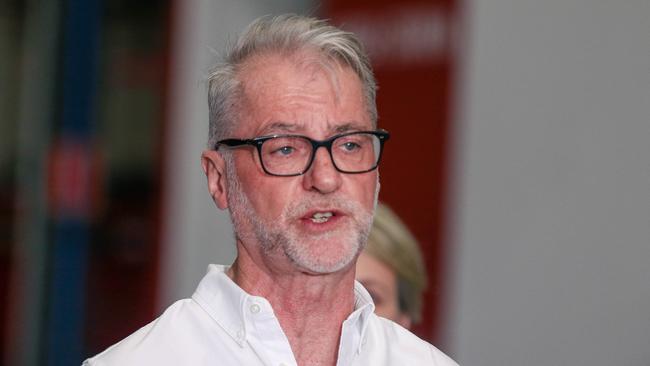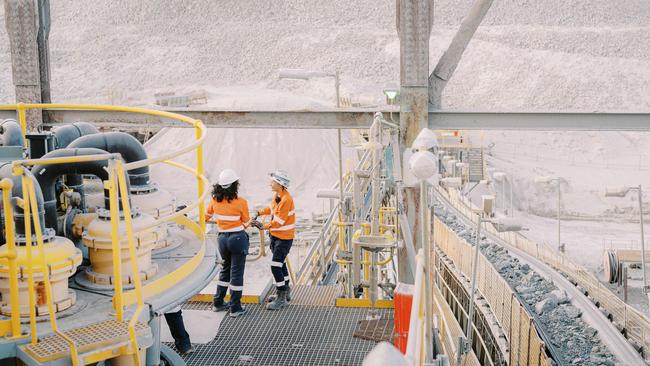
The legislation looks set to allow wider industrial relations laws and practices to open a second agenda — an attack on competition policy and encroach on the ambit of the Australian Competition and Consumer Commission.
The connecting link between the twin agendas is one of the key architects of the radical legislation, Senator Tony Sheldon, who was the chair of the Senate Select Committee on Job Security that made the recommendations and also the former Transport Workers Union national secretary.
In the modern world, achieving complex agendas requires the headline of a popular cause. Currently, it’s “same work, same pay”. Earlier, it was safety.

I described the first hidden agenda last week, setting out how the proposed legislation would give a government body the power to change the terms of legitimate, legal and properly negotiated contracts by declaring those contracts “employee like”.
We do not have the detail of the legislation, but all the signs are the next stage of the use of this power will be to reduce competition.
If we go back to 2014 when Sheldon was national secretary of the TWU, he negotiated a remarkable deal with the then management of transport giant Toll (very different to today’s management) whereby over five years Toll was to pay the TWU to investigate agreed and nominated Toll competitors with all results of the union investigation going to Toll. Among the information to be provided by the union to Toll was an assessment of key performance indicators of the competitors.
Back in 2014, in revealing this outrageous deal, I invited readers to imagine in the media industry, News Corp paying the MEAA to investigate Fairfax (or vice versa) and report the findings back to the company paying the money. The Toll-TWU deal was absolutely bizarre.
I speculated that one of the aims of a deal was to reduce competition in the transport sector. What I didn’t know at the time was that in the TWU-Toll Enterprise agreement the anticompetitive aims of the deal were clearly set out.
The fury created by my disclosure meant that the anti-competition deal was never fully implemented but, although dormant, the clauses remained buried in the voluminous 2022 Toll enterprise agreement.
The words are chilling: “Toll will engage constructively with the union on removing any potential barriers that may exist within competition laws, that might prevent the parties from being able to establish obligations and guidelines that provide safe and fair conditions for Owner Drivers and Outside Hire operators”.
This week, I shocked Team Global Express (formerly Toll) chief executive Christine Holgate when I alerted her to the clause that takes us back to those remarkable events of almost 10 years ago. She did not know it existed.
Back in 2014 the then head of the ACCC, Rod Sims, was not aware of that enterprise agreement clause but was shocked by the Toll-TWU arrangements and made these statements.
“Unions have been given a clear role under the law to represent their members and take action seeking improved wages and conditions. However, this does not give them or businesses co-operating with them a licence to seek to regulate markets,” he said.
“They could take themselves outside the above exemptions if they seek to determine which firms may operate within markets, what prices they can charge or how bids for work will be determined.
“In a market economy, it should be the market that sets prices and determines who participates and who wins work, not unions or businesses”.
Back in 2014 the popular issue was driver and road safety. There is no doubt this is an important issue and the community wants proper practices, but to control those practices via union dominance and anticompetitive behaviour is a perfect recipe for bad and costly work practices.
This time around in advocating for “same work, same pay” the peak union body, the ACTU, has picked out some of the workers with the highest pay in the land including building and construction (CIMIC), mining (BHP) and waterfront (Qube).
In each of those industries, the real issue is work practices and flexibility.
Inserting further union rules and encouraging anticompetitive behaviour will send already high labour costs much higher.
To illustrate, Sheldon’s agenda of a union working closely with a government body controlling the rules by which an industry, in this case transport, operates to minimise competition is already partly established in states like NSW. As you would expect, the best and most productive drivers receive similar rewards as lesser performers, as the incentives to be more productive are reduced.
If the legislation is passed that sort of behaviour will now will be extended to the entire nation including of course the nation’s current and future wealth-creating powerhouse of mining. That’s why BHP has raised the alert.
BHP has the resources to fight and will be able to expand offshore.
The main sufferers will be in small and medium-sized enterprises as their competitive advantage — the productivity, flexibility and efficiency — is trashed.
Forget productivity, this is all about cementing in high inflation and low productivity. In the end, this means less wealth. Accordingly, the standard of living we are able to offer less prosperous people, including the disadvantaged, will suffer.






The hidden agendas behind the government’s proposed “same pay, same work” industrial relations legislation go much further than creating unprecedented powers to change the way personal services contracting is conducted in Australia.